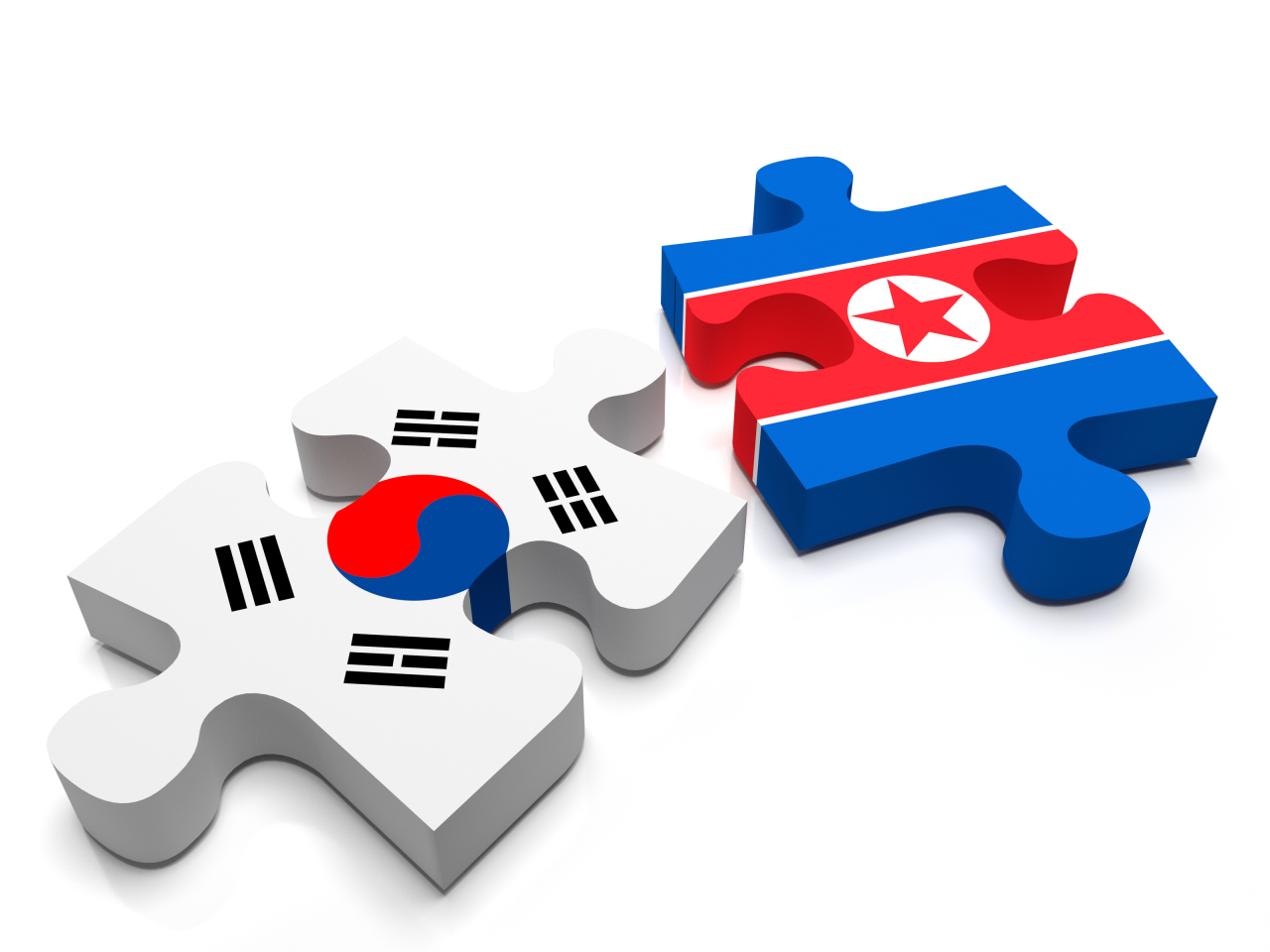 |
South Korean (left) and North Korean flags. (123rf) |
The Unification Ministry looks set to approve an inter-Korean barter trade of South Korea’s sugar for North Korea’s liquor and food products.
Before taking office late last month, then Unification Minister nominee Lee In-young said small-scale barter exchanges could pave the way for a resumption of stalled inter-Korean exchanges, as they bypass UN sanctions banning cash transfers.
A South Korean farmers’ cooperative in June sealed a deal with five North Korean trading firms, which calls for Pyongyang swapping 250 products including liquor, its signature ginseng and other food supplements for 167 tons of sugar from Seoul.
The exchange would come in stages with liquor coming in first and food products, such as soy sauce and soybean paste, arriving here later.
No cash transfer is expected in the deal and a Chinese company will help the delivery in the middle, making any direct exchange between the two Koreas unnecessary. The US earlier took issue with a South Korean truck carrying Tamiflu medication into the North.
Meanwhile, the Unification Ministry urged the North to jointly respond to the latest flood damage that dealt another blow to the regime still grappling with the COVID-19 pandemic, with the spokesperson saying precipitation levels this month there were higher than the worst record in 2007.
North Korean leader Kim Jong-un earlier mobilized the military to help with the recovery efforts in flood-ravaged regions including Hawnghae provinces, around Pyongyang, which produce the largest grain output for the country with a perennial food crisis.
“Hundreds of homes have been damaged and large areas of rice fields have been submerged due to heavy rain and some flash flooding,” spokesperson Anthony Balmain for the International Federation of Red Cross and Red Crescent Societies (IFRC) told Radio Free Asia on Monday.
North Korea’s Red Cross deployed 43,000 volunteers to provide food assistance and relief goods to those displaced residents and help contain the spread of the coronavirus, the IFRC said, adding families affected by floods were also supported so they would not fall victim to post-traumatic stress disorder.
North Korea’s Red Cross Society is the only organization with access to all nine provinces there, with Hwanghae and Kangwon provinces, which border South Korea, being hit hardest by the downpours.
By Choi Si-young (
siyoungchoi@heraldcorp.com)







![[Today’s K-pop] Blackpink’s Jennie, Lisa invited to Coachella as solo acts](http://res.heraldm.com/phpwas/restmb_idxmake.php?idx=644&simg=/content/image/2024/11/21/20241121050099_0.jpg)
